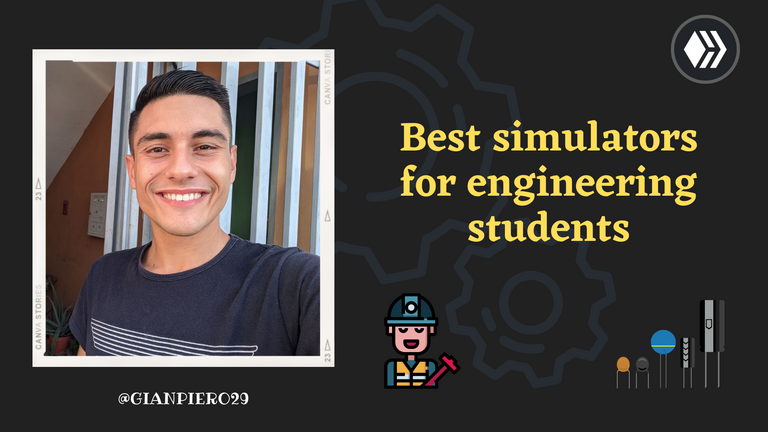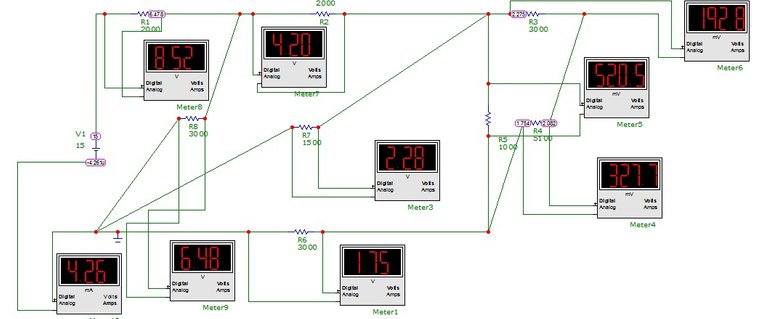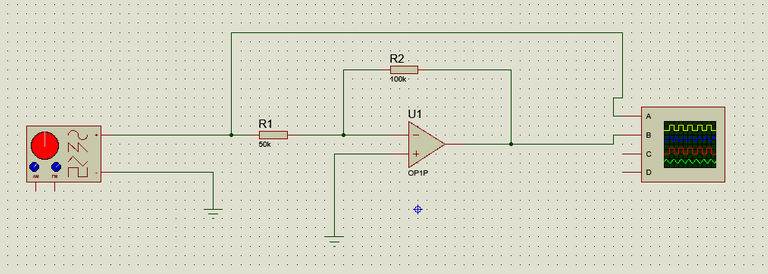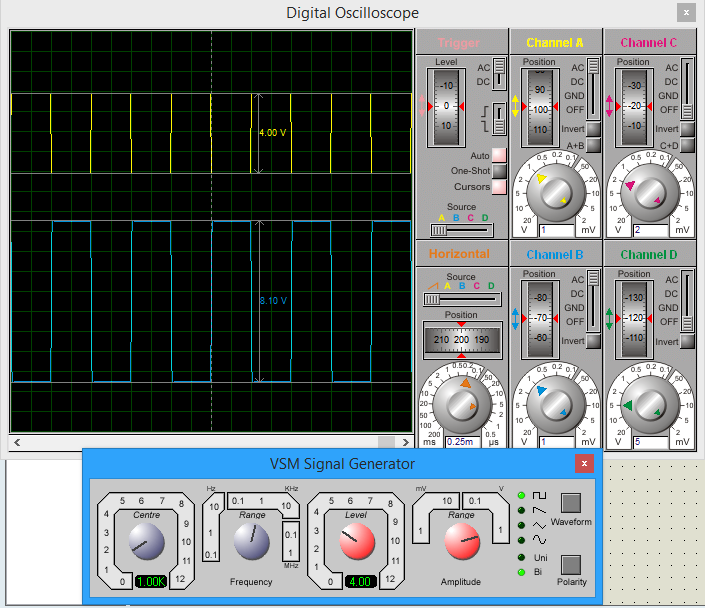Hello to all the Geek Zone community, this time I come to show you an area of technology that has helped many engineering students and other branches to learn and / or reinforce knowledge in a more practical way, I'm talking about simulators.
Hola a toda la comunidad de Geek Zone, en esta oportunidad vengo a mostrarles un área de la tecnología que ha ayudado a muchísimos estudiantes de ingeniería y otras ramas a aprender y/o reforzar conocimientos de una forma más práctica, les estoy hablando de los simuladores.

First of all, what is a simulator, in a few words is a software that allows to simulate the behavior of certain of a system according to certain conditions, in the case of Electrical Engineering, career that I am studying, they are used mostly to simulate electrical circuits, transmission lines, graphs, among many others, and for this post I thought I would talk a little of those that, in my opinion are the best I have used throughout my college career.
Primeramente, ¿Qué es un simulador?, en pocas palabras es un software que permite simular el comportamiento de ciertos de un sistema de acuerdo a ciertas condiciones, en el caso de la ingeniería Eléctrica, carrera que curso, se usan más que todo para simular circuitos eléctricos, líneas de transmisión, gráficas, entre muchos otros, y para este post se me ocurrió hablarles un poco de los que, a mi parecer son los mejores que he utilizado a lo largo de mi carrera universitaria.
Micro-Cap 12
Personally this was the first simulator I used back in the 3rd semester and one of the most used, so I am quite fond of this simulator. It is an interactive simulator of analog and digital circuits ideal for electrical engineering and electronics, in which I practiced a lot the basic series and parallel circuits, and what I liked most is the visual section, since, despite being a fairly light simulator and totally free, it looked pretty good, being able to visualize the voltmeters and ammeters in real time without having to be changing tabs, which made it very comfortable, especially when testing connections, and although I remember that it took me a while to understand how to use it, but once I got the hang of it I realized that it was actually quite simple to use, since it does not have such a large number of options, it is an ideal simulator for beginners, I'll leave you the link to their page so you can download it or read more about it.
Personalmente este fue el primer simulador que utilicé por allá en el 3er semestre y uno de los que más utilicé, por lo que le tengo bastante cariño a este simulador. Se trata de un simulador interactivo de circuitos analógicos y digitales ideal para ingeniería eléctrica y electrónica, en el practiqué mucho los circuitos básicos serie y paralelo, y lo que más me gustaba es el apartado visual, ya que, pese a ser un simulador bastante ligero y totalmente gratis, se veía bastante bien, pudiendo visualizar los voltímetros y amperímetros en tiempo real sin tener que estar cambiando de pestaña, lo que lo hacía muy cómodo, sobre todo al momento de probar conexiones, y aunque recuerdo que me costó un poco entender cómo utilizarlo, pero una vez que le agarré el truco me di cuenta de que en realidad era bastante sencillo de utilizar, ya que no tiene una cantidad tan grande de opciones, es un simulador ideal para principiantes, te dejaré el link a su página para que puedas descargarlo o leer más sobre él.

Proteus 8.5
This is one of the best known simulators in the world of electronics, especially because the range of options is really wide, it has thousands of components of all kinds to simulate virtually any circuit you can think of, with exactly the components you want, since, in addition to having the typical generic components, it also has specific components of world-renowned brands. I used it a few semesters later, to simulate my electronics circuits I and II, as this also allows the use of an oscilloscope, which is a fundamental instrument in this subject because it allows the visualization of electrical waves and their changes in terms of frequency or time, at first I was quite lost due to its wide variety of options and components, even allowed to simulate with Arduino components, these are boards with which we can do many things and that electronics engineers will know very well, here I will leave a link to your page.
Este uno de los simuladores más conocidos en el mundo de la electrónica, sobre todo, este debido a que abanico de opciones el realmente amplio, este posee miles de componentes de todo tipo para simulador prácticamente cualquier circuito que se te ocurra, con exactamente los componentes que tú quieras, ya que, además de tener los típicos componentes genéricos, también posee componentes específicos de marcas reconocidas a nivel mundial. Este lo utilicé unos semestres más adelante, para simular los circuitos de electrónica I y II, ya que este también permite la utilización de un osciloscopio, el cual es un instrumento fundamental en esta materia debido a que permite la visualización de ondas eléctricas y sus cambios en cuanto a frecuencia o tiempo, en un principio estaba bastante perdido debido a su gran variedad de opciones y componentes, incluso permitía simular con componentes de Arduino, estas son unas placas con las que podemos hacer muchas cosas y que los ingenieros en electrónica conocerán muy bien, por aquí les dejaré un link a su página.


Power World
This is one of the last simulators that I have used and the truth is that I have not yet mastered it completely, it is used to simulate transmission lines in great detail, and you will understand that this means that it has hundreds of options available so you have to have a very good command of the simulator to use it in the best way. I have just done a few practices for the subjects: Power system analysis and power system protections of the 8th and 9th semester respectively, and the truth is that I feel that it could be used for many types of analysis and even for research for undergraduate projects, but for that I must learn to use it a little more.
Este es uno de los últimos simuladores que he utilizado y la verdad aun no lo domino del todo, este nos sirve para simular líneas de transmisión con todo lujo de detalle, y comprenderán esto significa que tiene cientos de opciones disponibles por lo que hay que tener un muy buen dominio del simulador para poder usarlo de la mejor manera. Apenas he realizado unas cuantas prácticas para las materias: Análisis de sistema de potencia y protecciones de sistemas de potencia del 8vo y 9no semestre respectivamente, y la verdad es que siento que podría utilizarse para muchos tipos de análisis e incluso para investigaciones para proyectos de grado, pero para eso debo aprender a utilizarlo un poco más.


Thank you very much for reading, this was my post today, see you another time, greetings to all.
Muchas gracias por leer, este fue mi post de hoy, nos vemos en otra ocasión, saludos a todos.


The rewards earned on this comment will go directly to the person sharing the post on Twitter as long as they are registered with @poshtoken. Sign up at https://hiveposh.com.